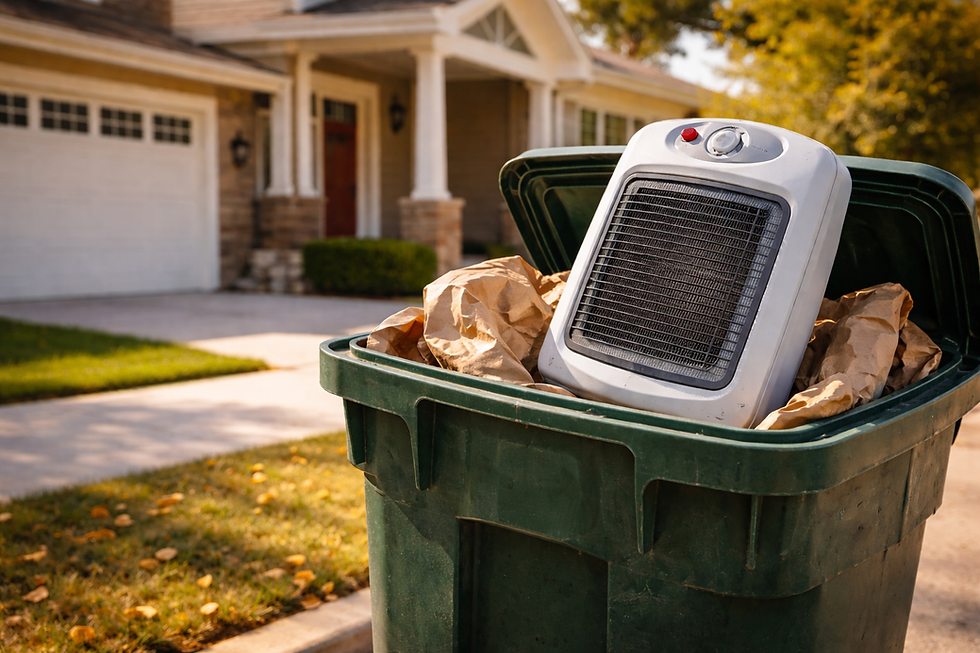Can a New HVAC Unit Increase Home Value?
- RJW Mechanical

- Oct 28, 2021
- 3 min read
Updated: Nov 1, 2021
Whether you’ve just purchased a new house or you’re thinking of putting your current home on the market, you’re probably looking for easy ways to increase your property’s value. Having a new HVAC system installed could be a good investment, but there are several factors to consider. Consulting with an HVAC repair contractor will give you a better idea of what a new system can do for your home’s value.
3 Questions to Ask Before Replacing Your HVAC System
Selecting home improvement projects that will add the most value to your home isn’t always easy. You may think projects that don’t affect the look or size of your home aren’t as valuable. That’s not always true.
Depending on where your home is located and the comparable prices in your real estate market, an upgraded HVAC system could add as much as 10% to your home’s value. This may not sound impressive, but with the median price of a house being $200k, a new HVAC could put $20k in your pocket.
Consider the following questions to help decide if investing in a new HVAC system is the best move.
1. Is your Current System Running Efficiently?
If your current HVAC is running at or above 80% efficiency, replacing it is not a sound investment. An HVAC repair contractor can run a thorough energy assessment for you, but you can learn a lot with a few DIY tips.
Generally, your unit is probably due for replacement if you notice any of the following signs:
It is more than ten-years-old
It makes loud clanging or banging noises when running
Rooms are unevenly heated/cooled
You have added or plan to add square footage to the home
The unit needs frequent repairs
High electric bills
For more information, check the temperature in every room/area of the home. The temperature should be even throughout the house no matter what the weather is like outside. Hot or cold spots indicate a problem.
2. How’s the Weather?
It may seem drab, but your local weather makes a big difference in how an HVAC system is valued. Consider the seasonal temperatures in your region. Desert homes need reliable cooling, and mountain homes need heat. If you regularly experience extreme winter or summer temperatures, a brand new energy-efficient HVAC system may be a big plus to buyers.
3. Does the Ductwork Need to be Replaced?
Replacing bad ductwork can cost thousands of dollars above the cost of a new HVAC unit. This project is more complex when it comes to increasing home value. Making the needed repairs may be a better choice than hooking up a new HVAC to outdated ductwork.
Getting the Most from Your HVAC Investment
If you’ve decided that a new HVAC is a good idea, there are a few things you can do to help increase the return on your investment.
Choose the Right Size Unit
If you’re going to invest in a new HVAC system, don’t go halfway. Improper sizing is one of the leading causes of inefficient heating or cooling. When a unit is too small for the square footage, it creates hot or cold spots. Because it has to work harder to regulate temperatures, an HVAC that’s too small will result in higher utility bills. Be sure to consult with a heating and cooling expert to ensure your new heater can do the job.
Reconsider the Location of the System
Is your current HVAC positioned in the best possible place? Consider having the system relocated if it’s taking up square footage that could be used for living space. The process may not add that much to the overall cost. Freeing up space inside your home could increase value.
If you’re thinking about purchasing a heating system that requires propane, think about how easy or difficult it might be to locate a source for delivering natural gas. The hassle of keeping a propane tank full could turn some potential home buyers away.
Will Add-Ons Add Value?
Perhaps adding a heat pump, a whole house fan, or a mini-split cooling system are better options than a new HVAC system. If your current system is still relatively new and running efficiently, an add-on heating or cooling appliance may add more value than a new HVAC.
Go Green
Today’s buyers are interested in homes that are energy efficient. The idea of reducing power bills and conserving energy without sacrificing comfort is enticing. Speak with your contractor about FTC Energy Guide labels and choose a new appliance that will boost your home’s green appeal.
HVAC Replacement or HVAC Repair?
The goal is to have an HVAC system that keeps your home cozy in the winter and cool in the summer while keeping energy bills low. It may or may not be necessary to purchase a new unit to meet that goal. The HVAC experts at RJW Mechanical can help you decide whether to replace or repair your HVAC unit for the best investment.








Comments